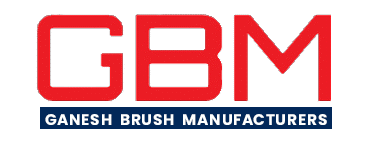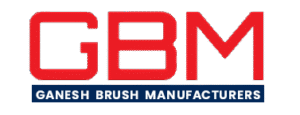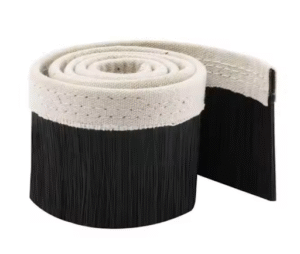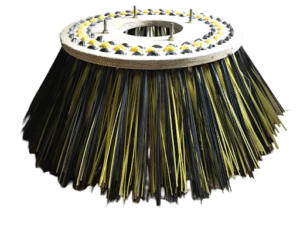Ever tried walking barefoot on a factory floor in India’s pharma or food processing unit? You wouldn’t dare. It’s not just about hygiene. It’s about precision. About rules. About brushes quietly doing the cleaning, polishing, scrubbing, and separating, without anyone noticing.
But the secret lies in one small question: How do you know the brushes used are pharma or food-grade?
Suppose you’re sourcing a facility, managing production, or simply curious about how India’s industrial systems stay clean and safe. In that case, this article by a leading Industrial Brush Company is your quick and comprehensive guide.
Let’s decode it all.
First, Why Do Brushes Even Matter in These Industries?
Brushes are just, well, brushes. Long handles and bristles. Basic. But in a pharmaceutical plant or a food-grade packaging line, a brush is almost like a surgeon’s glove. It touches everything but never leaves a trace.
Whether it’s wiping off powder from a tablet-making machine or sweeping food bits off a conveyor, these brushes must meet the highest levels of hygiene, material compatibility, and strength.
So no, it’s not as simple as buying a mop at the hardware store.
The Real Difference Between Industrial and Pharma/Food-Grade Brushes
A regular industrial brush might focus on abrasion, pressure handling, or static removal. A pharma or food-grade brush, on the other hand, is designed to do all that without contaminating the product.
What separates them?
- The filament material: This is the bristle. It must be Food Grade, non-reactive, and often FDA or EU-certified.
- The core or base: Usually Shafts made of stainless steel, Hub specific plastics that don’t rust, crack, or leach toxins.
- Shedding resistance: No loose fibres allowed. A single rogue bristle in a pharmaceutical batch can result in a loss of a million rupees.
- Sterilizability: Can it withstand autoclaving, steam washing, or chemical disinfectants?
And you’d be surprised at how many buyers in India still get this wrong.
What Does a Pharma or Food-Grade Brush Look Like?
Let’s visualise this a bit.
Picture a smooth white or blue brush, maybe cylindrical or flat, with stiff but clean bristles. No odd smell. No flaking. No jagged glue trails. When you bend the bristle, it snaps back into place. When you wash it, nothing falls off.
Here’s what you should not see:
- Wooden handles (they absorb moisture)
- Rusting staples or iron pins
- Mixed materials glued together casually
- Bristles that curl, shrink, or melt with hot water
In pharma and food, it’s not just about cleaning, it’s about not adding dirt while cleaning.
Types of Brushes You’ll See in the Industry
Let’s introduce you to a few common types you’ll likely come across. Not all are created equal, but these are typically seen in clean, compliance-heavy zones.
1. Industrial Cylindrical Brush
This one’s a classic. A rotating brush mounted on a shaft used in conveyor belt systems, capsule cleaning, bottle washing, vegetable cleaning units, and more.
You’ll spot it in:
- Automatic tablet coaters
- Blister packing machines
- Fruit and veggie lines
What to look for:
- Stainless steel shaft & food-safe polymer
- Nylon 6.6 or PBT bristles (not polyprop for pharma)
- Uniform, dense bristle rows with no gaps, depending on Applications.
Used correctly, a high-quality Industrial Cylindrical Brush can run for months without needing replacement.
2. Industrial Disc Brush
Disc brushes are flat and rotate horizontally, making them ideal for polishing and scrubbing flat surfaces like metal plates or trays.
In food units, they’re often used for cleaning conveyor trays or metal molds.
What to check:
- Look for FDA-compliant plastics in the disc base
- Heat-resistant and chemical-resistant bristles
- No sharp edges or screws that can fall into food
The best Industrial Disc Brush Manufacturers design them to withstand industrial disinfectants without degrading.
3. Strip Brushes and Block Brushes
These are narrow, long brushes with bristles coming out in one line or block. Great for sealing, sweeping, or lightly scrubbing delicate surfaces.
In food and pharma?
- They’re used to prevent dust from entering certain sections
- Sometimes mounted on machine hoods or packaging sections
You’ll often find SS profile strip brushes on filling lines where powder can float into surrounding areas.
So, How Can You Spot the Right Supplier in India?
This is where it gets tricky. Many sellers claim their brushes are pharma or food-grade. But few actually follow the full compliance checklist.
Here’s how you cut through the noise:
1. Ask for Material Certification
Any genuine Industrial Brush Company will happily share documentation showing FDA or food-contact grade approval for:
- Nylon bristles
- Stainless steel grades
- Plastic components
If they hesitate, move on.
2. See the Manufacturing Process
Not every company will let you tour their unit, but photos, videos, or technical data sheets showing:
- Bristle fixing method (staple-free is ideal)
- Autoclave compatibility
- Precision finishing (no glue leakage)
These are signs of serious manufacturing.
3. Demand Customisation
Every food or pharma plant is different. So if your supplier only offers “standard sizes,” that’s a red flag. A good Industrial Brush Company will:
- Design brushes to your exact machine dimensions
- Select filament stiffness
- Offer one-off prototype samples
This means they’re not just sellers, they’re brush engineers.
4. Check Who Else Trusts Them
See if they supply to:
- Major pharma companies
- Food giants Equipment manufacturers (OEM)
This shows real-world credibility in tough environments.
Why It Matters
Let’s say you get this wrong. What happens?
- In a food unit, a loose bristle ends up in a cookie pack, goes unnoticed, and reaches a customer. Legal nightmare.
- In a pharmaceutical plant, bristle contamination can delay an entire batch. Compliance violation. Thousands of pills wasted.
- In both cases, poor cleaning leads to microbial growth. You won’t even see it until it’s too late.
Now, imagine you get it right. You have brushes that clean better, last longer, and obtain regulatory approvals during audits.
That’s not a small win. That’s business protection.
Lifestyle Angle: What This Means If You’re Managing a Modern Facility
We live in an era where even the smallest detail gets scrutinised. Consumers are more informed, regulations are stricter, and even a single incident can go viral online.
Your industrial brush setup is part of that equation. Not visible to your end customer, but critical to your product integrity.
Think of it like your home kitchen. You don’t use your floor mop to clean the cooking pot, right? Same logic. Same hygiene thinking. Now applied at a massive industrial scale.
This is why companies are shifting from off-the-shelf brushes to custom, application-specific designs. Brushes are now part of your tech stack, just like sensors, SCADA systems, and IoT monitoring.
What Smart Buyers in India Are Doing Now
If you look at what leading food and pharma companies in India are doing today, you’ll spot a trend:
- They’re switching to single-material brushes that are easier to clean and sterilise
- They’re working with Industrial Disc Brush Manufacturers who can modify hardness based on surface type
- They’re using Industrial Cylindrical Brush formats for touchless cleaning
- They’re choosing vendors who offer batch-level traceability of brush components
And they’re saving money in the long run by reducing wastage, machine downtime, and cleaning failures.
Final Checklist: Ask These 5 Questions Before Buying
Let’s wrap this up with a solid checklist.
- Is the brush FDA/EU certified for food or pharma contact?
- Are the filaments shedding-proof, heat-stable, and chemical-resistant?
- Can I see the manufacturing specs, core material, filament fixing, and dimensions?
- Can the supplier customise the brush based on my machines or process?
- Do they have long-term supply consistency, support, and quick turnarounds?
If your answer is yes to all five, you’re in safe hands.
So, Where Do You Find the Right Partner in India?
If you’re looking for someone who truly understands the complexities of food and pharma brush manufacturing, look no further than Ganesh Brush Manufacturers.
Based in Pune and active since 2008 (with heritage dating back to the 1980s), they’re not just another Industrial Brush Company. They specialise in:
- Custom-designed Industrial Cylindrical Brush formats
- High-performance Industrial Disc Brush Manufacturers solutions for pharma and food lines
- Batch-controlled, shedding-proof brushes built to global compliance standards
Whether you’re upgrading a food plant, expanding a pharma line, or simply want brushes that match the seriousness of your production goals, Ganesh Brush Manufacturers delivers the kind of trust, experience, and precision you’d expect from a partner, not just a supplier.
Visit Ganesh Brush Manufacturers today and talk to people who speak your language, compliance, performance, and quality.





